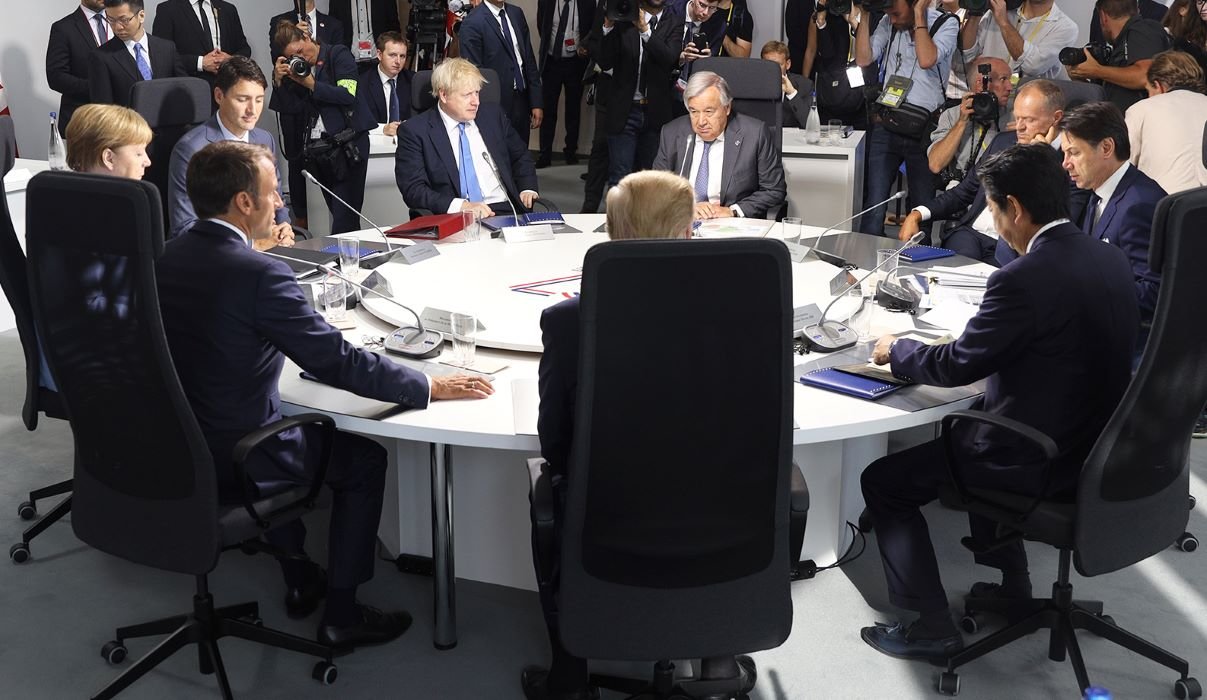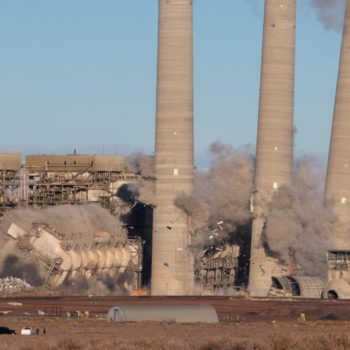2021 is the most important year for climate diplomacy since the Paris Agreement was signed in 2015. The UK is hosting both the G7 and the COP26 UN Climate Conference and has put climate action at the centre of the geopolitical and COVID recovery agenda.
Throughout early 2021, pressure has been building for explicit action to reduce coal power generation. At the Powering Past Coal Alliance summit in March, UN Secretary General Guterres said “G7 members should take the lead and commit to this [coal] phase out at the G7 June summit at the latest.” Similarly, the IEA’s Fatih Birol has highlighted that quitting coal power is the ‘single most important’ step in the six months before COP26.
And in a major speech on 14 May, COP26 President Designate Sharma stated the conference must enable emissions reductions of 50% by 2030 to keep the 1.5C temperature target alive. Sharma stated that “if we are serious about 1.5 degrees, Glasgow must be the COP that consigns coal power to history”. He called for COP26 to ensure that countries abandon coal power, adding that he is “seeking the G7 to lead the way”.
2021 is the year for G7 action on coal
The G7 aspires to take a leading role in shaping the multilateral agenda and setting norms for government action and international cooperation. After four years of diplomatic disruption the Trump Presidency, there is no better moment for the G7 to restate its climate leadership. As Sharma highlighted in his speech: “All G7 nations now have 2030 emissions reduction targets, aligned with net zero by 2050.”
Since 2015 E3G has tracked G7 progress on coal through a series of scorecard reports that assess G7 member performance and their collective influence. In our view, 2021 provides the most positive conditions for the G7 to chart the global course away from coal, reflecting developments spanning political leadership, diplomatic engagement, and real-world trends.
Our 2021 analysis highlights that:
- G7 action on coal matters. G7 countries are home to 68% of OECD (Organization for Economic Cooperation and Development) & EU coal capacity (as of May 2021). G7 progress on coal is an essential enabler of a broader coal exit by 2030.
- The G7 can seize the opportunity to phase out coal by 2030. Since 2010, G7 countries have already retired around 174GW of coal power plants, with a further 138GW scheduled to retire by 2030. This means that around 59% of collective coal power capacity across the G7 has either closed already since 2010 or is scheduled to retire by 2030.
- Performance has improved in all countries for the first time in six editions of E3G’s annual progress report. The underlying direction of government policy actions is positive, providing a platform for both further acceleration of national coal phase out efforts and G7 cooperation. This confirms an emerging ‘hidden consensus’ that major economies like the EU, US and UK are on track for a zero-carbon power system by 2035.
Country headlines:
- Canada, France, Italy and the UK are all on track for 100% phase out, with multiple coal power plants already closing.
- Germany’s revised climate law will require its 2038 coal phase out date to be brought forward to 2030. EU Emissions Trading Scheme prices and cheap renewables are already making coal uneconomic.
- In the United States, the Biden Administration’s commitment to 2035 net zero power would see coal generation offline around 2030. This would provide a strong foundation for US international diplomacy.
- Japan’s commitment to 46-50% greenhouse gas reduction by 2030 will require a step change in power sector decarbonisation. Japan’s plan to retire its less efficient coal units by 2030 can be expanded. Meanwhile, the cancellation of the final two projects not yet under construction means that no new coal plants are under development across the entire G7.
- The EU has emerged as a player on coal diplomacy, following a call from its foreign ministers in January to phase out coal globally. This creates more opportunities for strengthening G7 efforts and linking international commitments with domestic efforts across Europe and the rest of the OECD.
G7 collective leadership on coal: E3G recommendations
Drawing on our analysis of G7 member progress and global trends, E3G has three recommendations for G7 collective efforts to accelerate the broader transition away from coal power:
1 – Acknowledge that power sector transformation requires both coal exit and clean energy additions
The G7 should explicitly recognise for the first time that its members will aim to phase out coal power generation by 2030 and encourage other OECD countries to do likewise.
2 – Confirm an end to international coal finance
The G7 should commit to ending all international public finance for coal power generation and associated facilities, including through working together to strengthen the OECD export credit regime.
3 – Enable the retirement of coal power generation
G7 members should recognise the growing need for financial instruments to enable the retirement of coal power generation and commit both finance and diplomatic support to dedicated initiatives and instruments.
In delivering this three-pronged agenda the G7 would strengthen their collective weight and individual influence in advancing the global transition from coal to clean energy. It would directly support real world emissions reductions in pursuit of the Paris Agreement and provide high level leadership in support of the UK’s COP26 objectives.
The G7 Environment and Climate Ministerial will take place on 20-21 May, ahead of the Leaders’ summit in Cornwall on 11-13 June.
E3G’s full 2021 G7 scorecard report, available to read here, expands on the analysis and recommendations summarised above.
Jump to another article in this series:
- Charting the course away from coal: the G7’s leadership opportunity
- Strong currents: G7 coal transition data trends
- Surfing the waves: G7 progress towards coal phaseout
- Picking up the pace: Germany’s coal exit is getting closer to 2030
- Anchors aweigh: USA rejoins the coal transition mainstream
- Time and tide wait for no one: Japan’s coal progress



